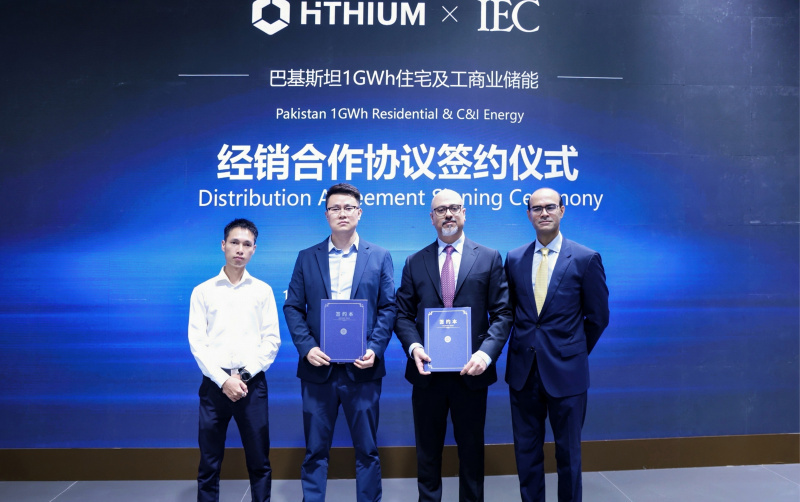By Han Lu
BEIJING, Aug.18 (China Economic Net) - At this year's China International Energy Storage Exhibition, Chinese battery giant Hithium announced a landmark partnership with Pakistan's The Imperial Electric Company (IEC) to distribute up to 1 GWh of residential and commercial energy storage products across Pakistan.
The agreement comes as Pakistan grapples with one of the most unreliable power grids in South Asia. Industry figures show the country faces an average of 31 blackouts per month—roughly 372 outages a year - disrupting businesses and households alike.
Under the deal, IEC will roll out Hithium’s HeroEE home energy storage systems, which use industrial-grade lithium iron phosphate batteries designed for safety, efficiency, and durability in tough environments. The companies also plan to co-develop customized storage solutions tailored to Pakistan’s energy challenges, including high generation costs, inefficient transmission networks, and heavy reliance on imported fossil fuels.

Pakistan, a nation of over 200 million people, spends more than $14 billion annually on imported oil and gas. Since 2021, electricity prices have soared 155%, placing a crushing burden on households and industry. Hithium says its HeroEE systems can cut power costs to as low as USD 5 cents per kilowatt-hour, nearly one-sixth the cost of diesel generation.
“This partnership brings advanced storage technology and reliable solutions to Pakistan, where stable power is desperately needed,” said IEC’s Group Operations Director, Reza.
Yu Jianyong, Vice General Manager of Hithium’s Residential Storage Division, added: “This is more than a business move - it’s a mission. By combining our technology with IEC’s local expertise, we aim to give Pakistani families and businesses fair access to affordable energy.”
The deal builds on more than $13 billion in Chinese investment in Pakistan’s energy sector, part of the broader China-Pakistan economic partnership. Hithium says the collaboration underscores Pakistan’s importance in its South Asia strategy, and could expand to large-scale grid storage and renewable projects in the future.
For Pakistan, the partnership offers more than just equipment - it signals a step toward breaking free from chronic blackouts, high costs, and dependence on imported fuel.
(Editor: wangsu )


